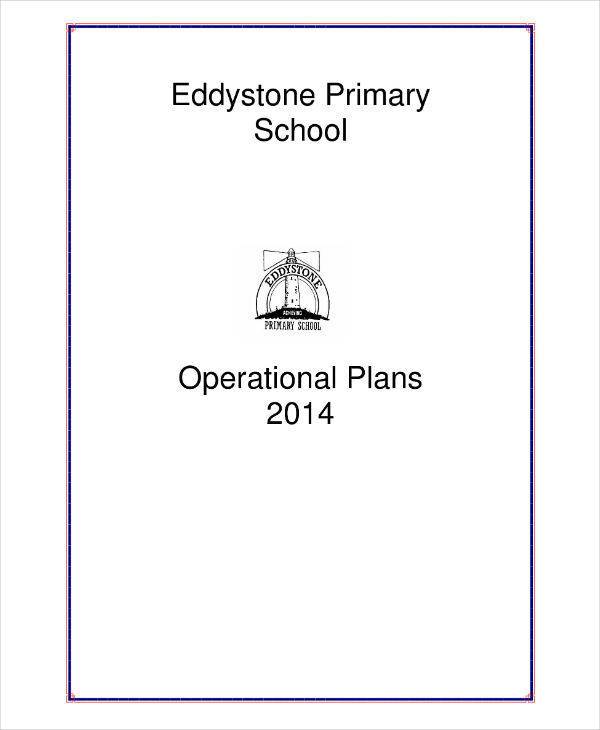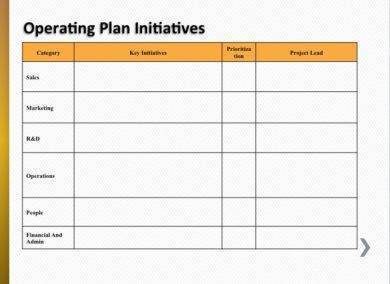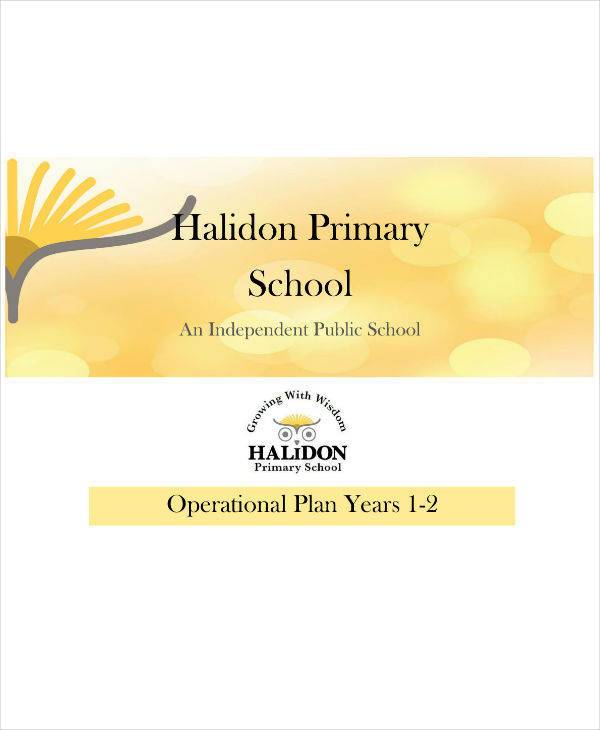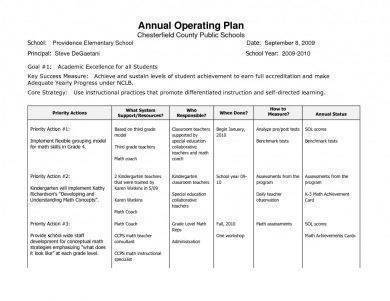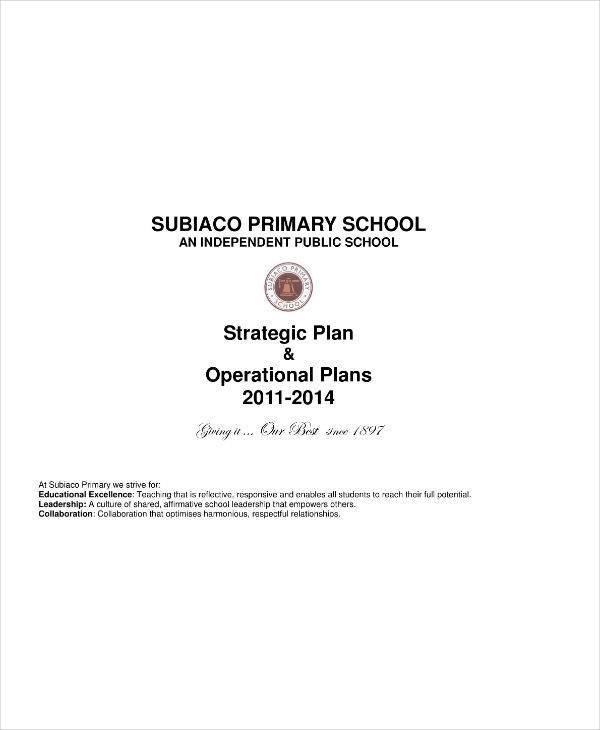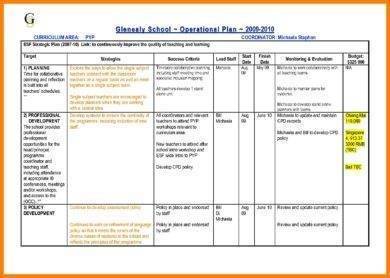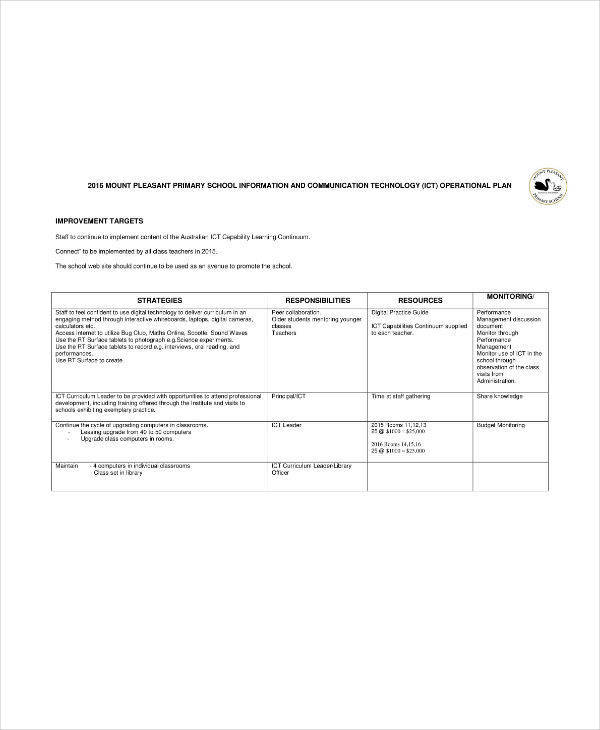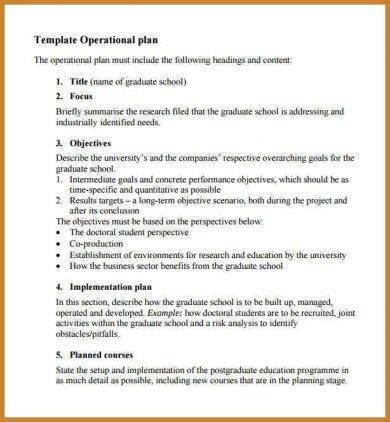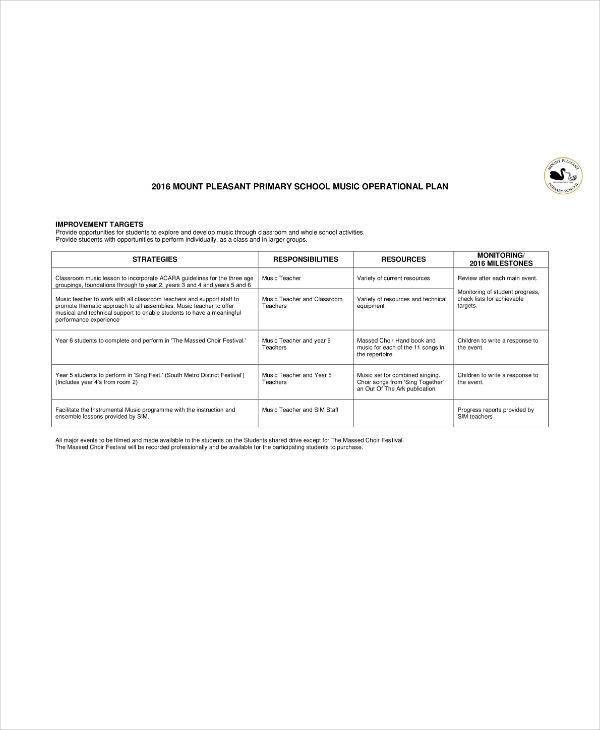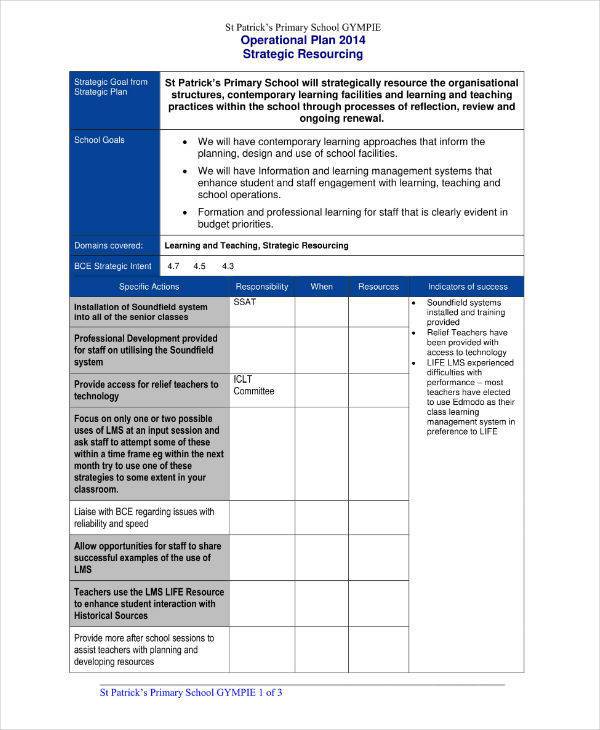Organizations need a well though of and effective operational plan as their guide for the day-to-day tasks and activities that they must accomplish. Organizations like primary school use this plan to manage and organize activities that consists of a large number of people, including the students enrolled in the school.
In this article, are operational plan samples and templates for primary schools that you can download and use as your reference. We will also cover related topics, like why operational plans are important, the questions it addresses and the steps on how you can create one. Feel free to check them all out below.
Primary School Operation Plan Sample
School Operating Plan Initiatives Samples
Operational Plan for Primary School
Public Primary School Operational Plan
Independent Public Primary School Sample
The Importance of Operational Plans
How are tasks and activities carried out on a daily basis in primary schools? An operational plan is used for the planning, management and implementation of school tasks and activities. It is used as a day-to-day plan of the organization’s management. An operational plan provides the details of tasks, activities and events so that they can be undertaken and the prepared strategies implemented. It is considered an important tool because of the following reasons.
- Formulated with reference to a strategic plan. An operational plan has its own set of goals and objectives and also has its own tasks and activities to carry out. But even if that is being said, it is still created based on the strategic plan that is created by an organization. How is it important then? It is important because all of its goals and objectives, as well as its tasks and activities are aimed at supporting the strategic plan, and at the same time providing the work output required of them.
- Provides a clear picture of different tasks and responsibilities. Through an operational plan, the different tasks that needs to be undertaken by a team or group of people within an organization becomes clear and this allows them to function and perform accordingly. This greatly helps so that everything is in harmony and prevents the occurrence of problems due to miscommunication.
- Helps accomplish related tasks. Because it provides the details of the tasks required, it makes it easy to carry out tasks and have them completed right on schedule.
- Gives direction to the work done by lower management. If day-today tasks and activities are carefully planned with set goals and objectives, then work is directed to the right direction and guided until it is completed.
- Allows a group to work on their own pace and set their own goals. Even if an operational plan is formulated based on a strategic plan, it still allows groups within an organization to work in their own pace and set their own strategies to achieve their goals. Doing so will result in better performance and good results.
- Provides an outline of operational expenses to be used for budget requests. Part of an operational plan is the presentation or the breakdown of the expenses or costs for the operations of a particular group or team for a specified year. Without an operation plan, budget requests may seem questionable or may not be approved at all.
- Facilitates the coordination of resources. Aside from planning the day-to-day tasks in an organization, an operational plan is also used to help facilitate the coordination of different resources required for the organization’s operations. These resources could be materials, equipment, technology or manpower.
How does your organization use an operational plan? There are other operational plans in existence and all of them are worth exploring. Examples of these plans are Business Operational Plan Samples & Templates, Annual Operational Plan Samples & Templates, and HR Operational Plan Samples & Templates.
How to Create a Primary School Operational Plan
Operational plans are created or formulated by managers or supervisors from a group or team within an organization. Not everyone or anyone is tasked to come up with such plan, but ideas and suggestions from everyone involved is highly appreciated. To give us an idea on how a primary school operational plan is created, here are some useful and easy steps that you can check out.
Step #1: Consider the organization’s strategic plan.
The very first things that you need to do before actually starting your operational plan is to take into consideration the strategic plan created for the entire organization or the organization as a whole. Doing this will allow one’s team or group to set goals and objectives that will support the entire organization’s goals and at the same time guide the day to day operations of their team.
Step #2: Be specific with your goals and objectives.
After considering the strategic plan of your organization, you can now set the goals and objectives for the operation plan of your team or department. Remember that your operational plan will guide your team and help you manage all of the tasks and activities required of your team so you must be very specific with them. You will also need to include the steps on how tasks will be carried for everyone to follow. This allows uniformity of the tasks performed.
Step #3: Provide a time frame for each goal.
When setting goals, it is necessary to provide or assign a time frame for each of your goals. This will allow your team to mage time effectively and decide which tasks are priority and which one’s can be done at a later time. This way you will know you will be able to tell which goals have been achieved and which one’s you need to work harder to accomplish. It is also a must to be specific about the time frame for each of your goals. Instead of saying in a couple of months, you can say within three months time starting in October and ends in January of the next year.
Step #4: Coordinate with other members of the organization.
An operational plan needs to be tested and implemented. To do this you will need to coordinate with other members of the organization for work that needs to be collaborated, especially when specific areas of expertise are needed. Make your operational plan one that fosters teamwork and establishes clear communication for your team. This is the key to be successful with the implementation of your plan.
Step #5: Revise or update the plan as necessary.
Once tested, then you will be able to point out flaws in your plan or changes that must be made to make it appropriate for the changing needs of your team and the entire organization. Do edit or revise your plane regularly or as necessary. No one plan is best for all types of situations. The best type of plan however is one that is flexible and knows how to cater to the needs of the people involved in it or who are affected by it.
Use these steps to help you formulate your own operational plan. With this guide, your task will be made easier and convenient. And if you need additional help, why not use related articles, samples and templates as your reference. We have Security Operational Plan Samples & Templates, Project Operational Plan Samples, and School Operational Plan Samples & Templates on our website that you can download.
Primary School Operational Plan Outline
Primary School ICT Operational Plan
Primary School Operational Plan Template
Primary School Music Operational Plan
Primary School Operational Strategic Plan
The Five Questions Addressed by an Operational Plan
An operation plan answers five main questions that helps determine its contents as well as how it will be carried out. These four questions are as follows:
- Who – This refers to who are involved in the operational plan and who will be responsible for the tasks outlined in it. Your operational plan should have these details included so that you will know who to talk to or inquire about the completion of certain tasks or activities. Identifying the involved individuals somewhat binds them to the plan and makes them responsible for the tasks assigned to them.
- What – What do you want to achieve with an operational plan? The best answer to this question are the goals and objectives that you have set or decided. Why do you need to know what you want to achieve? That is because it gives direction or purpose to the operational plan that you are making, thus creates a useful and ideal plan. A plan with a purpose and a plan with direction is a plan that will lead you to a successful year. If you do not know what you want and what you want to do, you will end up aiming blindly at something and be unproductive.
- Where – One of the things that you would want to know when making an operational plan is that where you currently are in the process and where you want to go with what you want to do. It may easy to think of a where you want to be with your plan as that is comprised by your goals and objectives. What’s difficult is pointing out where you currently stand. You can’t just say that you are in the stage of your life where you are ready take on new challenges. The question remains are you really ready and what basis do you have to prove this. You may just stop halfway because you were wrong. And that’s why it’s important to be able to tell where you, your team and your organization is in the process.
- When – The best answer to this question is the time frame or timeline of the operational activities in your plan. Operational plans are usually good for a year that is why a timeline of tasks and activities to achieve or accomplish these goals must be provided.
- How – How will the plan be carried out? How much will it cost to support the entire plan? These are just some of the questions asked when formulating an operational plan. The budget for every plan plays an important part in its implementation that is why the costs should also be taken into consideration when creating one.
We hope that you are able to find this article useful. You may also check out other related articles offered on our website to know more about them. To name a few titles are Simple Operational Planning Samples & Templates, Military Operational Plan Samples, and 100 Day Plan Templates.
Related Posts
FREE 10+ Higher Education Lesson Plan Samples in MS Word | Pages | Google Docs | PDF
FREE 9+ 30-Day Marketing Plan Samples in PDF | MS Word | Apple Pages | Google Docs
FREE 3+ Sales Team Action Plan Samples in PDF | MS Word | Apple Pages | Google Docs
Marketing Plan For Small Business Samples
FREE 7+ Fashion Business Plan Samples in PDF
FREE 10+ Sprint Planning Samples In MS Word | Google Docs | PDF
FREE 10+ Wedding Planning Samples in MS Word | Apple Pages | Powerpoint | PDF
FREE 9+ Monthly Study Planner Samples in PSD | Illustrator | InDesign | PDF
FREE 9+ Sample Curriculum Planning Templates in PDF | MS Word
FREE 10+ Teacher Development Plan Samples in MS Word | Google Docs | Apple Pages | PDF
FREE 10+ Basketball Practice Plan Samples in PDF
FREE 12+ School Business Plan Samples in PDF | MS Word | Apple Pages | Google Docs
FREE 7+ Client Strategic Plan Samples in PDF | MS Word
FREE 11+ Trucking Business Plan Templates in PDF | MS Word | Google Docs | Pages
FREE 7+ Small Hotel Business Plan Samples PDF | MS Word | Apple Pages | Google Docs

